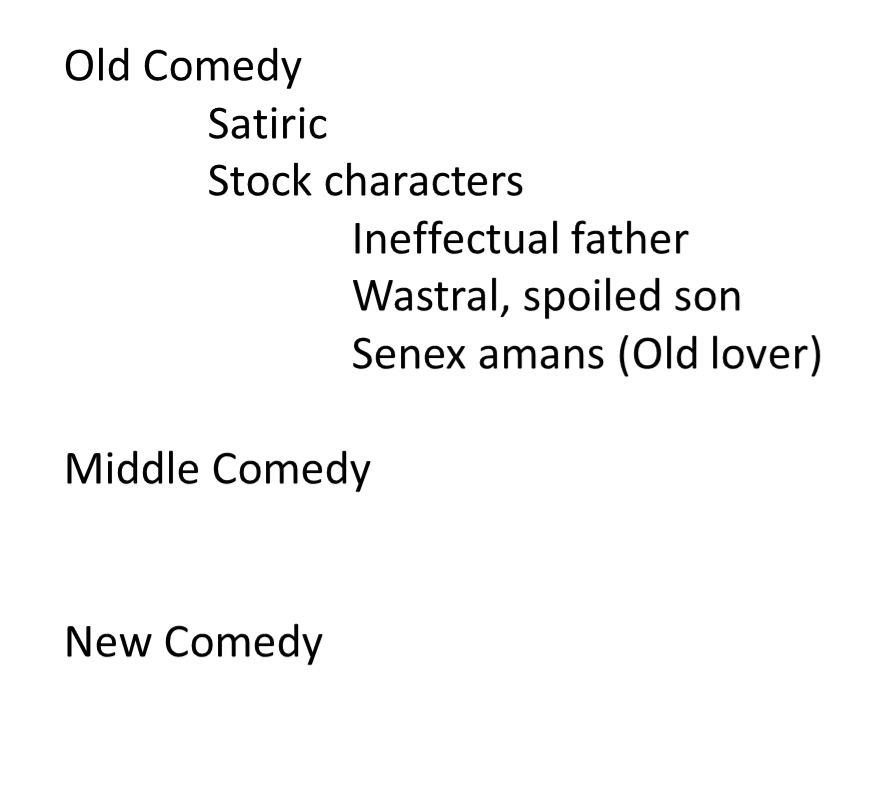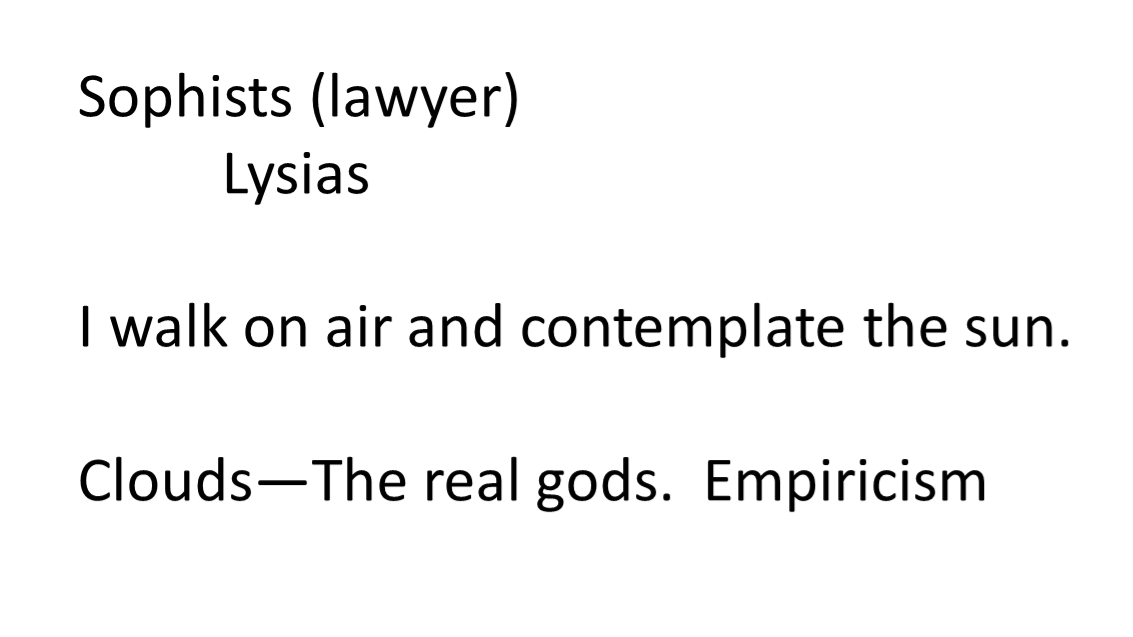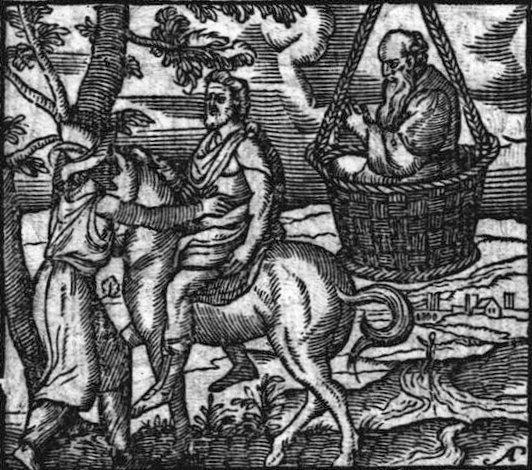 Home Page
Home Page
Aristophanes.
The Clouds.


The Clouds by Aristophanes is a comedy written in 432 B.C. Aristophanes lived 446 BC – 386 BC and was a playwright in ancient Athens. Except for a few fragments by other comics, his plays are all that remain of Old Comedy. Old Comedy was Middle Comedy and then New Comedy. Old Comedy was characterized by its lampooning of real people, institutions, and events. In that way, it's similar to satire. New Comedy (Middle Comedy is mostly lost) avoided portraying actual people — it was too dangerous for the playwright to anger powerful tyrants. Instead, we find an increase in the use of stock characters, which were present from the beginning. New Comedy is the ancestor of both Shakespeare's comedies and the modern sit-com. They endlessly mix and re-mix the stereotypical characters — the henpecked husband, the over-bearing wife, the wastrel son, the braggart soldier, the bothersome neighbor.
If Medea represents the great fear of the patriarchal
Athenians — a strong woman — The Clouds presents us with
the inverse fear — that of being an ineffectual father.
Strepsiades is unable to discipline either his wife (now
deceased, apparently) or his son, Phidippides. As a
result, he is heavily in debt and needs to figure out a way out
of his debts. At the time, citizens were required to
present their own case, but they normally paid a person familiar
with the legal system to write their speeches for them. In
this case, Strepsiades decides to go to school himself to learn
to write his own speech.
Strepsiades ends up at the Thinkery (or Thoughtery), headed by
Socrates. Given that Plato didn't start writing his
dialogues until after the death of Socrates in 399 B.C., this
play is the introduction of Socrates on the stage of world
literature. Aristophanes makes Socrates into a buffoon,
entering the play in the basket (machina, Latin; mēchanē,
Greek) hanging above the stage and spouting, "I walk on air, and
contemplate the sun." The machinery was designed to portray the
grandeur of the gods who normally rode in it, but it could also
be ripe for satire.

It would only take a few twitches on the rope to
make the machinery into a farce. The farce still
works. In 1988, George H. W. Bush was running against
Michael Dukakis for President. Bush was a very tall
candidate, and Dukakis a very short one. That was also
the year that a study came out that showed that in a
Presidential race, the taller candidate typically won. Problem:
how how to have a presidential debate that did not give an
unfair advantage to the taller candidate.
Solution: a platform that adjusted to the height of the
candidate. The lift was a great success, at least until
Saturday, when Saturday Night Live got a hold of it.
Socrates was a good target for satire because he
was bald, ugly, and went around barefoot when any other
citizen who could afford it would wear sandals. He was
also local, where many of the Sophists he debated were from
other cities and less well-known. Aristophanes makes
Socrates into a Sophist, which he was not. It may have
been difficult for the towns people to tell the difference
among the schools of thought; it was easier to just lump them
all together.
Aristophanes DOES give us an insight into the
early phases of the Greek enlightenment. This was the
first time that analytical thought had been applied to
question of how things worked. The title comes from the
play's contention that Zeus is not really the god who causes
thunder; that would be the Clouds. In the context of the
play, this is the wrong answer, but it turns out to be much
closer to the answers the will eventually come from philosophy
and science about the nature of lightning. We see a
similar debate in The Lion King, where the mythic
answer is correct in the movie and the literally correct
answer gets laughed at:
Aristophanes even sometimes anticipates the eventual
scientific revolution; figuring out how far a flea can jump
compared to its body size is empirical research of the kind
that biologists actually do. We also see the scholars
trying to teach the thick-headed Strepsiades poetic
meter. The dactyl (Greek for 'finger') is a long vowel
followed by two short ones (— ~ ~); supposedly because the
meter bears a resemblance to the a finger with its one
longer joint and two shorter ones. Strepsiades
responds sticking his middle finger out at Socrates, which
is the first reference I've found in history to "the
finger." I had no idea the gesture was so ancient.
The play had such an impact and hurt Socrates' feelings so
much that 30 years later when he was on trial for his life,
he spent a good bit of his defense complaining about how
unfairly he had been treated by Aristophanes. He even
quoted a few lines. Think he had the whole thing
memorized?

